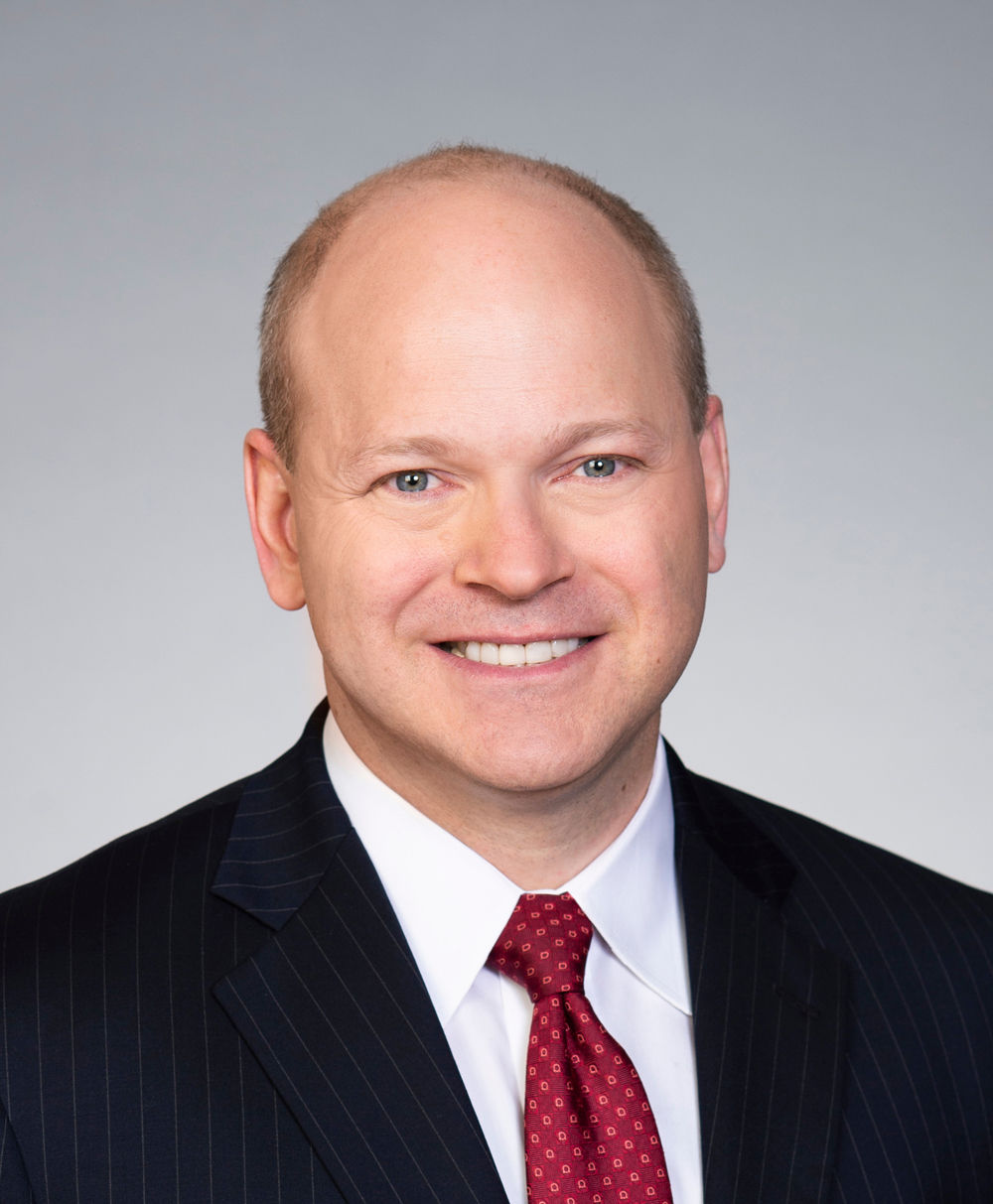As the President of Mercer's Investments and Retirement business, Rich Nuzum deals with many of the world's largest and most sophisticated investors, tackles some of today's most complex investing issues, and juggles the challenges of running a large business within an even larger company.
One of his keys to success? Be nice.
In a business built largely on relationships, Nuzum says two things he tries to instill in the culture at Mercer is to be nice and to be humble, not always easy in an arena sometimes dominated by "superstar" managers and big egos. But over time, providing investment advice to clients in more than 20 countries (and living in a handful himself), it's been proven to work. Of course, it's a bit more involved than that. We spoke with Rich to learn more about his leadership style and to get his thoughts on a handful of timely investment issues.
Let's start from the beginning. How did you find yourself in the investment world in the first place?
For me it was accidental. My parents were both teachers and I really didn't know anything about investment consulting. I was finishing up a graduate fellowship in economics at Tokyo University in Japan and wanted to stay in Japan to improve my Japanese. So I needed a job, and Mercer needed a bilingual native English speaker for some of their clients. Mercer was also trying to start up an investment consulting business in Japan, which was my main day job that I sort of fell into after graduate school. Thirty years later, here we are.
Mercer has an interesting history, now dating back more than 75 years. Talk a bit about how the firm was created and how it has evolved.
Bill Mercer founded our firm out of the back of his car with $25 in capital that he borrowed from family and friends. He went into competition with the big insurance companies that dominated retirement benefits at the time. He was entrepreneurial and innovative, and he also passed on two key elements of our culture. One is that we take a blank-sheet-of-paper approach - we customize for every client and there is no cookie-cutter. And second is service. Most of our clients hire us because they are not technical experts - they may not be able to evaluate the quality of our technical advice for years before they see the results. But any client can quickly evaluate service quality - do we care about them, do we return calls quickly, do we listen? Service is where we can differentiate ourselves early in a client relationship. Back then Bill Mercer beat out the big insurers by designing retirement plans to fit the specific talent needs of his clients, with an emphasis on customization and service. Today, 75 years later, retirement and investments is still Mercer's largest line of business.
The idea of focusing on income in retirement, versus simply accumulating assets, continues to gain traction. Are you hearing that a lot from your clients?
There is a lot of discussion around this. Some of our social security fund clients globally and some US public fund clients have acted on it, but on the corporate side in the US it's been held back by lack of a clear safe harbor. Generally speaking we look at plan sponsors as falling into three buckets: minimalists, pragmatists, and responsible employers. The minimalists want to have a competitive plan but that's pretty much it. They check that box and move on. The pragmatists do things that have a return on investment. So, if demonstrating that being concerned about retirement income will improve employee engagement or retention, they will want to do something. And the responsible employers feel like it's their responsibility to make sure employees are taken care of in retirement. Having a clear safe harbor would help more clients take action, and if there were a fiduciary obligation even the minimalists would do more.
While some parts of the world are much further along than others, Environmental, Social and Governance (ESG) is increasingly becoming a driver of investment decisions around the globe. How do you view ESG investing?
I think we're on a multi-decade journey with ESG. Governance is something we've been focusing on throughout my career and it's an area where you can prove that companies with better governance have tended to outperform. I think with ESG it's not whether, but how. Like all investments there's room for reasonable people to disagree, but if you want to outperform you need to be early and you need to be right. There's a 'screen for green' community that's investing in things that are green and a 'brown to green' community that's trying to invest in disruptive technologies and get paid for doing that. Those two communities are actually investing in very different ways. The debate is polite but there's a clear split in the community. There is room for both, and they are helping things progress to a more sustainable future. One thing that does frustrate me is when people think ESG is all about noneconomic considerations. For any company, what your customers think about you and what your community thinks about you matters, and when regulators don't see you as a good actor you will attract adverse attention. If your competitors are better at articulating their ESG standards you will be at a competitive disadvantage. At the end of the day ESG is actually all about earnings growth and earnings stability, exactly the same as everything else in investing.
Diversity within the workplace and within the asset management industry overall is being addressed more than it used to be. There are studies that show a more diverse staff often leads to better investment performance. Talk about the importance of diversity and inclusion to you.
A star-driven portfolio management process with a hierarchal team that's not very inclusive or not very diverse might work if the star were really strong and if nothing ever changed. But the world is changing, with new information sources and new ways of getting access to information being innovated every day. If you don't have a diverse team - and inclusion so that the diverse voices are heard - you won't evolve as quickly as your competitors. We care deeply about diversity and inclusion and it's now also much more important to our clients, not only because it drives better investment returns but because societally many clients have decided they want to support diversity, equity, and inclusion. It's been mission critical for Mercer for a long time as an input into trying to predict which investment teams will outperform in the future - I remember writing manager research in the early 1990s and covering diversity and inclusion -- but it's now being recognized more broadly by the industry as mission critical.
You were the recipient of CIO's 2017 Industry Innovation Award. Talk about what led to that recognition.
I'm very proud of that honor, and it was really a team accomplishment. I hope and believe that the technical work I've done together with teams of my colleagues over time and across many different client types has been valued, but there are two key things we try to instill in our culture. One is to be humble - recognize that you can be wrong, don't be arrogant. And the other is just to be nice - this is a relationship-driven business. What comes around goes around, and there is actually academic research that shows being nice pays off. I've tried to be a good role model for our team. I believe that if you do good technical work and you build good relationships then good things will come your way in this industry.
There must be no shortage of challenges in your role. What are some of the biggest?
One is how to instill culture, ensure consistency and leverage scale in what is a people business. And that got more difficult with the lockdown. We're a large firm and our scale brings definite benefits to our clients and to our people, but there is a danger in being big if it is allowed to make it more difficult to stay human as an organization. Our clients and people can't feel like we're unwieldy, slow, or bureaucratic.
Another challenge is around differentiation. Some clients want easy answers, and some players in the industry will promise to give those to them. We won't. We like diversification, and dynamic de-risking, and rebalancing. Our investment processes are designed to try to deliver stable second quartile results, not top decile results with a risk of bottom decile. We're almost deliberately boring. And making that work commercially when it's not always the flashiest proposition can be a challenge.
What do you like to do to relax outside the office?
I have three sons and a daughter so watching them do their sports is my main outside activity. They're all athletes. The main sports are basketball, football and mountain biking for the boys, and my daughter is a serious ballerina. I tease my boys that she's the best athlete in the family, and she is. Everyone always told me that fatherhood is unimaginably rewarding, and it has turned out to be true. I'm eight years away from being an empty nester and I'm going to enjoy every second of time with them until then.
you may also like
-
Anne-Marie Fink, CIO, Private Markets & Funds Alpha at State of Wisconsin Investment BoardWith more than $160 billion in assets under management, the State of Wisconsin Investment Board (SWIB) is one of the largest public pension funds in the U.S. Nearly 700,000 beneficiaries depend on SWIB for their retirement needs, and playing a key role in ensuring those benefits are there is Anne-Marie Fink.
Read More
-
West Yorkshire Pension Fund CIO, John DeweyJohn Dewey is Chief Investment Officer at West Yorkshire Pension Fund, part of the Northern LGPS pool, where he leads investment strategy and collaboration across local authority funds.
Read More
-
Wilton Re CIO Shilpa LakhaniLakhani is a 20-year veteran of the industry and currently the chief investment officer of Wilton Re, overseeing nearly $40 billion in assets.
Read More





